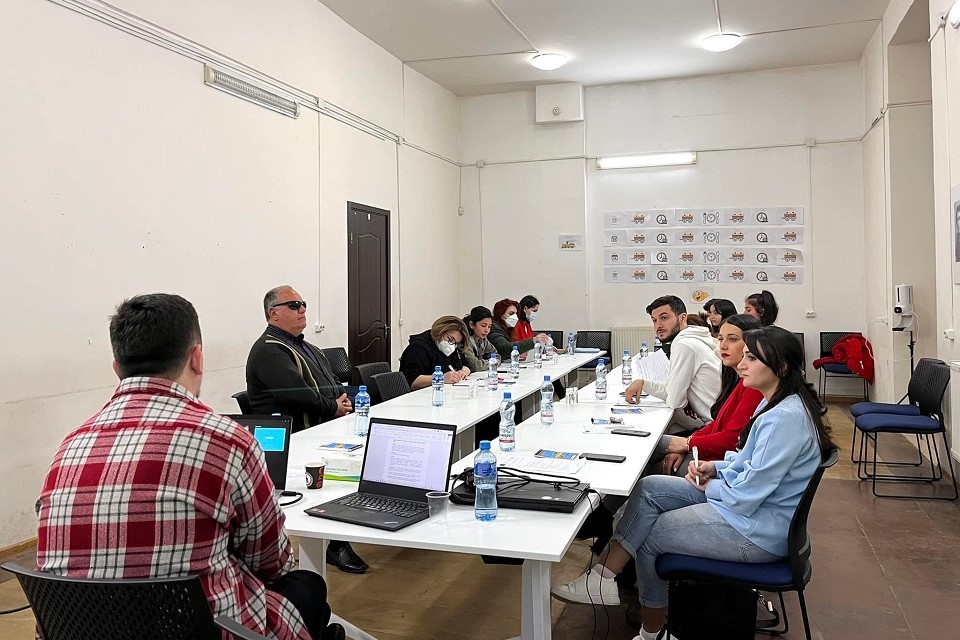Regional media focus on its gender-sensitive coverage
Date:

UN Women, in cooperation with the Georgian Charter of Journalistic Ethics and backed by the European Union, continues to support and promote ethical media coverage of women’s rights and LGBTQ issues. To this end, the Charter conducts awareness training, as agreed upon in a Memorandum of Understanding on gender-sensitive reporting, to highlight the issues and popularize relevant standards and self-regulatory mechanisms.
In April and May, gender-sensitivity training on news coverage was conducted for media representatives working in the Kvemo Kartli region. In addition to 25 journalists, members from local community organizations and activists voluntarily attended these training sessions. The participants discussed issues such as the principles and significance of preparing gender-sensitive reports as well as the risks of unethical reporting, which potentially reinforces discriminatory attitudes. During the training, information was also shared regarding how to achieve gender-sensitive reporting based on fairness and balance. The best practices for working with women and LGBTQ people were also discussed.
“It was very important training. I received interesting recommendations on ethical coverage of gender and LGBTQ issues, and the transfer of information using the right terminology. I will definitely use this knowledge in my work,” said Mariam Kveladze, a journalist from the community radio Marneuli and one of the participants.
At the end of the training, representatives from the Women’s Information Center conducted a roleplay entitled “In Her Shoes” aimed at raising awareness on the issue of violence against women. This enabled participants to experience the real-life stories of women and girls who have been the victims of violence, to learn more about the problem, and to become more empathetic.
This factor was particularly underscored by one of the participants of the roleplay, Fariz Dashtamirov: “Now I have a better understanding of what women have to go through and what path they have to take in cases of domestic violence. I hope such meetings will continue in the future,” he noted.
The Journalists’ Training Module was based on special guidelines developed for media outlets with the support of UN Women. Centred around these approaches, the coaches themselves were trained, and besides Kvemo Kartli, they will also conduct further training in Guria and Tbilisi this year.
The collaboration between UN Women and the Georgian Charter of Journalistic Ethics is part of the “Ending Violence Against Women and Girls in Georgia” project, which is implemented by UN Women and UNFPA with the support of the European Union.